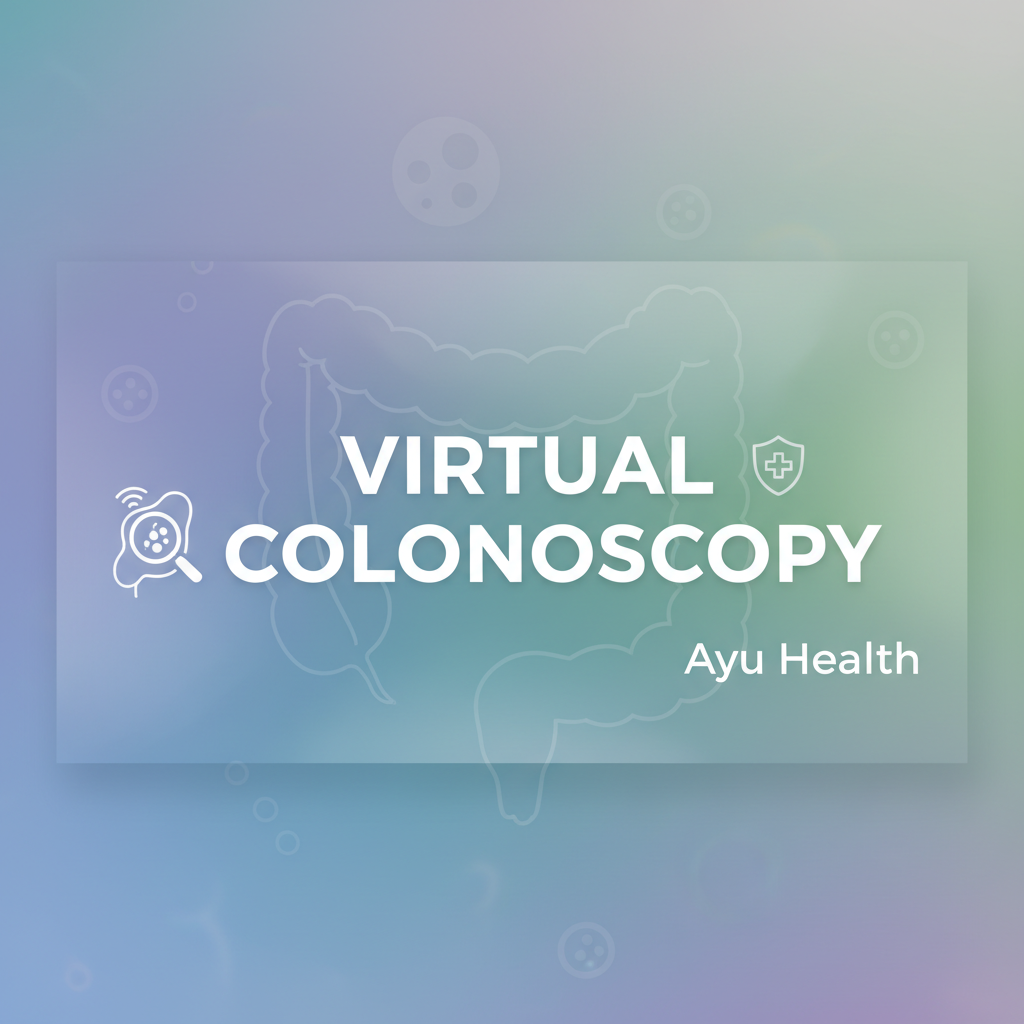What is Colon Cancer Screening?
Colon cancer screening is a vital process used to detect precancerous polyps (growths) or early-stage cancer in the colon and rectum. The colon and rectum, which are part of the large intestine, are susceptible to the development of abnormal growths that can potentially turn into cancer over time. Screening aims to identify these issues early, allowing for timely intervention and significantly improving the chances of successful treatment and survival.
Essentially, colon cancer screening is a proactive health measure. It’s about looking for potential problems before they cause symptoms. By finding and removing polyps before they become cancerous, screening can actually prevent colon cancer altogether. It's a crucial tool for maintaining long-term health and well-being, especially as the risk of colon cancer increases with age. It is also recommended to investigate any symptoms you might be experiencing.
Key Facts:
- Early detection dramatically improves survival rates.
- Screening can prevent cancer by removing precancerous polyps.
- Colorectal cancer is becoming increasingly prevalent in India, especially in urban areas.
- There is a rising incidence of colorectal cancer among younger adults in India.
- Awareness and implementation of colorectal cancer screening remain a significant challenge in India.
Why is Colon Cancer Screening Performed?
Colon cancer screening is performed for several key reasons:
- Early Detection of Cancer: To find cancer at an early stage when treatment is most effective.
- Prevention of Cancer: To identify and remove precancerous polyps before they develop into cancer.
- Risk Assessment: To assess the risk of hereditary cancers based on family history or genetic factors.
- Investigating Symptoms: To identify causes of abdominal pain, rectal bleeding, chronic diarrhea, and other bowel problems.
When Doctors Recommend It:
Doctors typically recommend colon cancer screening based on age and risk factors:
- Average Risk: Starting at age 45.
- Increased Risk: Earlier screening (before age 45) is recommended for individuals with:
- A family history of colorectal cancer or polyps, especially in a first-degree relative diagnosed before age 60.
- Genetic conditions like Lynch syndrome or Familial Adenomatous Polyposis (FAP).
- Chronic inflammatory bowel diseases (IBD) like Crohn's disease or ulcerative colitis.
- Symptomatic Individuals: Anyone experiencing symptoms such as changes in bowel habits, rectal bleeding, or unexplained abdominal pain should consult a doctor for potential screening, regardless of age.
Preparation for Colon Cancer Screening
Proper preparation is crucial for accurate results and a successful colonoscopy. Here's what you need to do:
Essential Preparation Steps (for Colonoscopy):
-
Bowel Preparation: This is the most important part. Your colon must be completely empty for the doctor to see clearly.
- Dietary Restrictions:
- Avoid solid foods for 1-3 days before the procedure. Your doctor will provide specific instructions.
- Typically, you'll switch to a clear liquid diet (broth, clear juices, water, clear tea/coffee without milk).
- Avoid red or purple liquids, as they can be mistaken for blood during the procedure.
- Three days before your screening, you should stop consuming nuts, any fruits containing small seeds, tomatoes, corn, popcorn and celery.
- Laxatives:
- You will need to drink a strong laxative solution the day before the colonoscopy to clean out your bowel.
- Follow your doctor’s instructions carefully regarding the timing and dosage of the laxative.
- You may also need to use enemas to ensure complete bowel cleansing.
- Medication Adjustments:
- Discuss all medications you are taking with your doctor, including over-the-counter drugs and supplements.
- Some medications, such as blood thinners, may need to be adjusted or stopped temporarily before the procedure.
- Dietary Restrictions:
-
Transportation: Arrange for someone to drive you home after the procedure, as you will likely be sedated. You shouldn't drive yourself.
-
What to discuss with your doctor: Discuss medications you're currently taking. Be honest about your symptoms and medical history.
India-Specific Tips:
- Fasting: Follow the fasting instructions provided by your doctor meticulously. This is especially important in India, where dietary habits can vary significantly.
- Documents: Carry all relevant medical records, including previous test results and a list of your current medications.
- PCPNDT (Pre-Conception and Pre-Natal Diagnostic Techniques Act, 1994): While not directly related to colonoscopy, be aware of this act, which prohibits sex determination of a fetus. This is a general awareness point for healthcare in India.
What to Expect:
- You may experience frequent bowel movements and abdominal cramping as the laxative works.
- Stay close to a toilet and have comfortable clothing readily available.
- Drink plenty of clear fluids to stay hydrated during the bowel preparation process.
- Follow your doctor's instructions precisely to ensure the colon is adequately cleaned.
The Colon Cancer Screening Procedure (Colonoscopy)
Here's a brief overview of what happens during a colonoscopy:
- Arrival and Preparation: You will arrive at the hospital or clinic and change into a hospital gown. An IV line will be inserted for administering sedation.
- Sedation: You will receive medication through the IV to help you relax and feel comfortable during the procedure. In most cases, this will be light sedation, so you are awake but not feeling pain.
- Positioning: You will lie on your side on the examination table.
- Insertion of Colonoscope: The doctor will gently insert a long, flexible, and thin tube called a colonoscope into your rectum.
- Examination: The colonoscope has a camera at the end that transmits images to a monitor. The doctor will carefully examine the lining of your colon and rectum for any abnormalities, such as polyps or suspicious areas.
- Polyp Removal (if necessary): If any polyps are found, the doctor will remove them using instruments passed through the colonoscope. These polyps will be sent to a lab for biopsy.
- Air Inflation: Air is gently pumped into the colon to inflate it, allowing for better visualization of the lining. This may cause some discomfort or cramping.
- Withdrawal of Colonoscope: Once the examination is complete, the colonoscope is slowly withdrawn.
Duration, Comfort Level:
- The procedure typically takes about 30-60 minutes.
- With sedation, you should feel minimal discomfort. You may experience some pressure or cramping.
What Happens During the Test:
During the colonoscopy, the doctor will:
- Carefully examine the entire colon and rectum.
- Remove any polyps or suspicious tissue for biopsy.
- Take photographs or videos of any abnormalities.
- Document the findings in a report.
Understanding Results
After the colonoscopy, the doctor will discuss the preliminary findings with you. The final results, including the biopsy results, will be available in a few days.
- Normal: If no polyps or abnormalities are found, the colonoscopy is considered normal. The doctor will recommend when the next screening should be, typically in 10 years for average-risk individuals.
- Abnormal: If polyps are found, the biopsy results will determine if they are precancerous (adenomas) or cancerous.
- Adenomas: These are precancerous polyps that can develop into cancer over time. The doctor will recommend more frequent screenings to monitor for any changes.
- Cancerous Polyps: If cancer is found, the doctor will discuss treatment options, which may include surgery, chemotherapy, and radiation therapy.
What Results Mean:
- Normal Colonoscopy: Indicates a healthy colon with no signs of polyps or cancer.
- Adenomas: Suggests an increased risk of developing colon cancer in the future. Regular screening is necessary to monitor for any changes.
- Cancerous Polyps: Requires prompt treatment to prevent the cancer from spreading.
Next Steps:
- Follow the doctor's recommendations for follow-up screenings and treatment.
- Maintain a healthy lifestyle, including a balanced diet, regular exercise, and avoiding smoking and excessive alcohol consumption.
- Discuss any concerns or questions with your doctor.
Costs in India
The cost of a colonoscopy in India can vary significantly depending on several factors:
-
Price Range:
- Private Sector: ₹ 2,600 to ₹12,000 is a good starting point, but can quickly increase. Some facilities charge ₹ 1,000 to ₹ 50,000 depending on many factors.
- Government Sector: ₹ 350 to ₹ 850. However, wait times can be much longer.
-
Factors Affecting Cost:
- City: Metropolitan cities (e.g., Mumbai, Delhi, Bangalore) are generally more expensive.
- Facility: Private hospitals and clinics typically charge more than government hospitals.
- Equipment: More advanced equipment and technology can increase the cost.
- Sedation: The type and amount of sedation used can affect the cost.
- Additional Tests: Biopsies and other additional tests will add to the overall cost.
- Health Condition: If you have other health conditions, the procedure might be more complex, increasing the cost.
- Doctor's Fees: Fees vary based on the doctor's experience and reputation.
-
Insurance: Colonoscopy costs are generally not covered under insurance unless it's part of a pre-surgery diagnosis or for patients already experiencing symptoms. Preventive screening colonoscopies are often not covered. Check with your insurance provider for specific coverage details.
Insurance Tips:
- Enquire with your insurance company about coverage for diagnostic colonoscopies if you have symptoms or a family history of colon cancer.
- Consider purchasing a health insurance plan that covers preventive screenings.
- Ask the hospital or clinic about payment plans or discounts.
How Ayu Helps
Ayu is a medical records app designed to help you manage your health information conveniently and securely.
- Store Results Digitally: Store your colonoscopy reports, biopsy results, and other relevant medical records digitally in the Ayu app.
- Track Over Time, Share via QR: Track your screening results over time to monitor for any changes. Easily share your medical records with your doctor using a secure QR code.
- Reminders: Set reminders in the app for follow-up appointments and future screenings.
FAQ (Frequently Asked Questions)
Here are some common questions patients have about colon cancer screening:
Q: At what age should I start getting screened for colon cancer? A: Generally, screening is recommended starting at age 45 for individuals with average risk. If you have a family history of colon cancer or other risk factors, you may need to start screening earlier.
Q: What are the different types of colon cancer screening tests? A: Common screening tests include colonoscopy, flexible sigmoidoscopy, fecal immunochemical test (FIT), stool DNA test, and CT colonography.
Q: Which screening test is best for me? A: The best screening test for you depends on your individual risk factors, preferences, and the availability of resources. Talk to your doctor about which test is right for you.
Q: Is colonoscopy painful? A: No, colonoscopy is generally not painful because you will receive sedation to help you relax during the procedure. You may experience some pressure or cramping, but it should not be severe.
Q: What are the risks of colonoscopy? A: Colonoscopy is generally safe, but potential risks include bleeding, perforation (a tear in the colon wall), infection, and adverse reactions to sedation. These risks are rare.
Q: How often should I get screened for colon cancer? A: The frequency of screening depends on the type of test you choose and your individual risk factors. For example, if you have a normal colonoscopy, you may only need to get screened every 10 years. If you have polyps, you may need to get screened more frequently.
Q: What if my screening test results are abnormal? A: If your screening test results are abnormal, your doctor will recommend further evaluation, such as a colonoscopy, to determine the cause of the abnormality.
Q: Can colon cancer be prevented? A: Yes, colon cancer can be prevented through regular screening, early detection, and removal of precancerous polyps. Maintaining a healthy lifestyle, including a balanced diet, regular exercise, and avoiding smoking and excessive alcohol consumption, can also reduce your risk.



